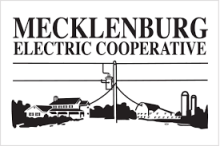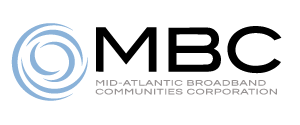
Fast, affordable Internet access for all.

Mecklenburg Electric Cooperative (MEC) plans to partner with Mid-Atlantic Broadband Communities Corporation (MBC) to extend Fiber-to-the-Home (FTTH) to member residences and businesses in southern Virginia. MEC’s project is yet another effort from rural cooperatives to bring high-quality connectivity to regions that don’t have the same options as urban communities.
Another Electric Cooperative Expanding To Broadband Services
Mecklenburg Electric Cooperative (MEC) is a not-for-profit energy provider headquartered in Chase City, Virginia. MEC is a member of a regional electric cooperative Old Dominion Electric Cooperative (ODEC), which provides wholesale electric services to 11 member cooperatives in Virginia, Maryland, and Delaware. MEC is currently providing electric distribution service to residents, businesses, and other institutions in nine Virginia counties and five North Carolina counties.
In September, MEC board of directors approved a plan to upgrade fiber optic network infrastructure to connect 27 substations and the three district offices. The upgrade will afford MEC the opportunity to implement a FTTH pilot project to connect member residences and businesses.
MEC plans to initially connect 47 miles of fiber to offices in Gretna and Chase City and seven substations. In the future, MEC would connect offices in Chase City, Ebony and Emporia. In total, the intended fiber optic network would pass within 1,000 feet of 3,000 member residences and businesses in 6 counties.
President & CEO of MEC John C. Lee, Jr.
“It would be inconceivable for us to deploy fiber that will pass right by the homes of many of our members and not make every effort to share that service with them, especially given that our members have waited patiently for access to the same high-quality internet service enjoyed by those in urban areas…they have waited long enough and they should never have to settle for less”
Mid-Atlantic Broadband Communities Corporation (MBC) will improve the chances of the pilot project moving forward while also reducing the cost of the deployment. Through a joint-use agreement with MBC, MEC would connect its substations and three district offices to an existing MBC fiber backbone. MEC will be able to cut costs and reduce construction by connecting to MBC fiber rather than constructing the entire route.
Lee went on:
“We are very fortunate to have MBC in Southside Virginia. They continue to bring value to our region and without our partnership with them, even entertaining the thought of offering last mile fiber to the homes of our members would be incredulous,” Lee states, adding, “MBC already has large portions of “middle mile” optical fiber in place throughout the Cooperative’s service territory, and our agreement to exchange capacity with MBC will allow us to establish our backbone ring more economically.”
Connecting To Middle Mile Fiber
MBC started as a cooperative in 2004, but later became a 501(c)(4) nonprofit corporation. In 2004, MBC received $12 million grant to build an open access fiber network from Virginia Tobacco Commission (VTC) and the US Department of Commerce Economic Development Administration (EDA). In 2005-2006, MBC received a $24 million grant from VTC to complete the network. By 2006, MBC had built over 600 miles of fiber connecting 20 counties and four cities.
 The National Telecommunications and Information Administration (NTIA) Broadband Technology Opportunities Program (BTOP) awarded a $32 million grant to MBC in 2010 as part of the American Recovery and Reinvestment Act (ARRA). The grant funded three projects: $16 million to connect K-12 schools without fiber, $10 million to extend the network to connect community anchor institutions (CAIs), and $6 million to deploy fiber from Blacksburg to Bedford in partnership with the Virginia Tech Foundation.
The National Telecommunications and Information Administration (NTIA) Broadband Technology Opportunities Program (BTOP) awarded a $32 million grant to MBC in 2010 as part of the American Recovery and Reinvestment Act (ARRA). The grant funded three projects: $16 million to connect K-12 schools without fiber, $10 million to extend the network to connect community anchor institutions (CAIs), and $6 million to deploy fiber from Blacksburg to Bedford in partnership with the Virginia Tech Foundation.
As of 2017, MBC owns and operates more than 1,800 miles of open-access fiber optic network in 31 counties in southern Virginia. Since its start, MBC has continued to serve the region. This past spring, MBC started a new program to partner with Microsoft in order to bring connectivity to the homes of school kids in rural Virginia.
Grant For Last Mile Fiber Extension
According to MEC, the prospects for the fiber extension pilot project rely heavily on whether or not they receive grant funds from Virginia’s Tobacco Region Revitalization Commission (TRRC) Last Mile Broadband Program.
In 2017, the Virginia Tobacco Region Revitalization Commission (TRRC) launched its Broadband Program. TRRC has set aside $10 million to assist last mile fiber optic construction projects. Since 1999, TRRC has dedicated over $150 million to fiber optic infrastructure across Virginia.
“[T]he MEC board and staff have come to the conclusion that fiber deployment to the areas we serve has a number of common factors to the extension of electric service to MEC members in 1938 when no one would bring power to rural areas because of the sparse population and the inability to recover the investment. Those parallels lead us to ask ourselves the same question about fiber that our cooperative’s forefathers asked the community about electricity in 1938…if we don’t deploy fiber and offer ultrahigh-speed internet utilizing this technology…who will?”
For more on the ways rural cooperatives are expanding better Internet access in rural America through FTTH deployment, download our policy brief, Cooperatives Fiberize Rural America: A Trusted Model For The Internet Era here.
Listen to Christopher’s 2015 conversation with former MBC President and CEO Tad Deriso in Community Broadband Bits Podcast episode 146 on improving Mid-Atlantic Internet access.
